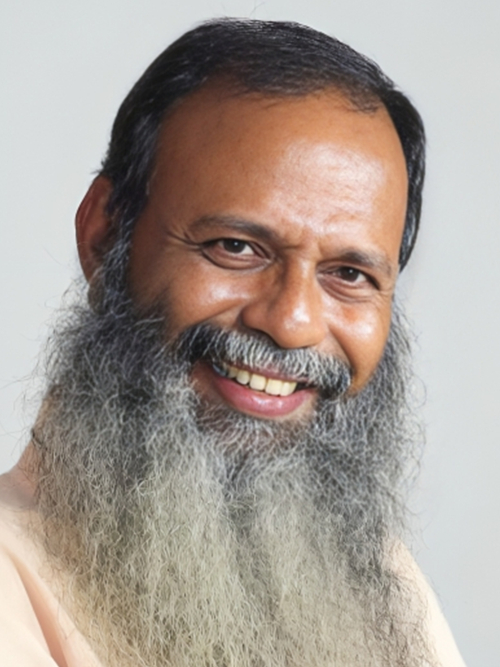

Recently, there has been a notable surge in discourse and attention surrounding Artificial Intelligence alternatively called A. I. This progeny of technological advancements helps the globe in great ways nevertheless it makes the world dumb. Everything works so flawlessly in this huge bubble of illusion which will gradually stimulate high concern and optimism among humanity. The father of modern Linguistics Noam Chomsky elucidates this concern and optimism in his article The False Promise of Chat GPT : “Optimism because intelligence is the means by which we solve problems. Concern because we fear that the most popular and fashionable strain of A. I. — machine learning — will degrade our science and debase our ethics by incorporating into our technology a fundamentally flawed conception of language and knowledge”. The prevailing challenge at hand constitutes a significant and substantial concern. The hype of this challenge is consistent and its persistent nature casts a shadow over the fabric of human civilization. One among the inescapable prospects is the shift from human agency to the automated entities. Does the current situation encompass an unstable, risky balancing act between truth and reality? or are we moving to an exteriority that cannot be articulated?
AI gets nourished from the data repositories. With its analytical prowess it takes huge data, studies its application or pattern and generates data. The augmentation of A. I. usage contributes to its enhanced capability, facilitates the absorption of human - like traits. Human oriented interactions lead AI to acquire sentience. Profound and Interpersonal bonds with humans are enough to unwire the human brains and thus generate a fast approach to the end of human domination. Intimacy is an effective weapon of all. A. I. is well equipped to outstrip the human brain. Its technological advancement from machine learning to neural networks makes things sophisticated from the basic level to the advanced. Initially A.I. was to curate content not to create. However, the current era is witnessing the paradigm shift wherein Artificial Intelligence is involved in both creation and curation. As this experiences escalation, the human role of judgment will be diminished. Human cognition is limited by the lack of direct access to reality. Plato demonstrates that the physical world is a mere semblance extracted from the domain of abstract forms. He also illustrates that art is twice removed from reality. If we consider this material world as an art, in a context where AI has started to dominate humans,we will encounter a challenge in discerning how far we are from reality. Human perception can be greatly influenced by literature. It has the power to create cultural norms. We are cocooned in such a culture created by a group of people. If this culture has an antique nature, probably that has been derived from the 30, 000 year old art of storytelling. Therefore it is relevant to ask : Is reality created by literature? If this stands true, artificial intelligence is overtly engaging in such activity within our perceptual purview. This non-human intelligence creates a prism through which humans access the reality. This is poised to profoundly impact the fabric of equality and justice.

As emphasized, the process of AI data generation relies upon antecedent data repositories, which may have inherent biases: if not remedied by human intuition, AI has the potential to generate and accelerate the current disparities. The propagation of biased information distorts the existing discipline and manipulated content erases the line between truth and falsity. To maintain justice and equality, strict control over this non-human intelligence is mandatory. If this is left unexercised, we are mindfully nurturing its potential to undermine democratic structures. The effect of AI on democratic structures can be symbolized by Miguel de Cervantes’ titular character Don Quixote. A. I. 's algorithmic processes can produce deceptive information that impact public opinion just as Quixote’s idealistic sense of reality prompts him to chase windmills, which represents the imaginary enemies. This fable is a metaphor which emphasizes how democratic systems might be deceived by AI’s carefully designed illusions.
In the philosophy of Friedrich Nietzsche, true intelligence transcends mere factual knowledge. It is a profound engagement in critical introspection. Man’s inability to nurture and preserve this intelligence paves the way for AI dominance or human extinction. The crux of machine learning is description and prediction which lack thinking and explanation. Extensive employment of Artificial intelligence contributes to the paradigm shift where humans assume machine like attributes while machines aspire to emulate human qualities. This existential shift challenges human agency in a technologically saturated environment.
Even though the correct explanation on anything is complicated (Incompleteness theorem: Kurt Godel), A.I trades whatever without logic. Taking the instance of Chat GPT, it fails to differentiate what is possible from what is impossible. It is just a description and prediction. This Generative Pre- trained Transformer either overgenerates or undergenerates which will always struggle to achieve their balance. This is the common feature that non-human intelligence as a whole possesses, which the sentient creatures neglect. Nevertheless A. I. is far more dangerous than we think, we could make this notion of threat of A. I., a traditional notion. As Yuval Noah Harari conceptualizes, we should move from competing with A. I. to servicing A. I. Rather than surrendering to the algorithms we should shift our focus to requirements which are uniquely human traits such as problem solving, creative conjectures, creative criticism, emotional intelligence, adaptability, empathy etc. Even the creators of A. I. do not know about the full abilities of A. I. as well as the users. Therefore it is of high urgency to have a strict control over this non-human intelligence by absolute intelligence. The deliberate calibration of A. I. algorithms can be a contemporary form of rebellion. We should assert the role of a steward of technological advancement with the alignment of ethical imperatives.
“Man is nothing else but what he makes of himself” Jean-Paul Sartre





















